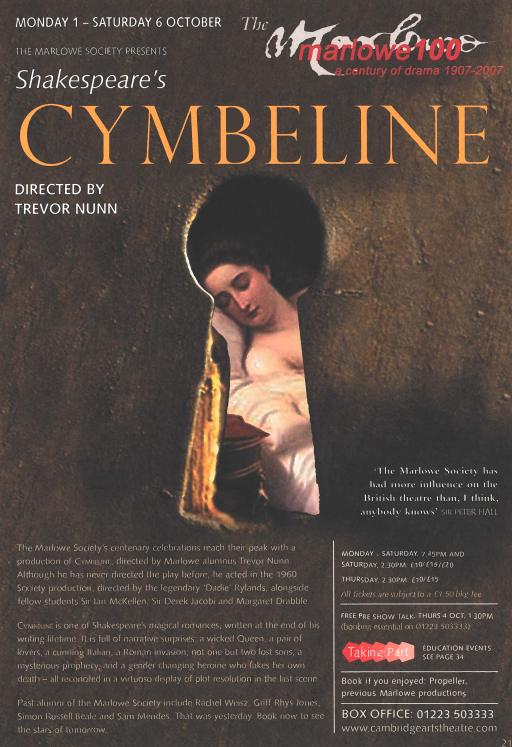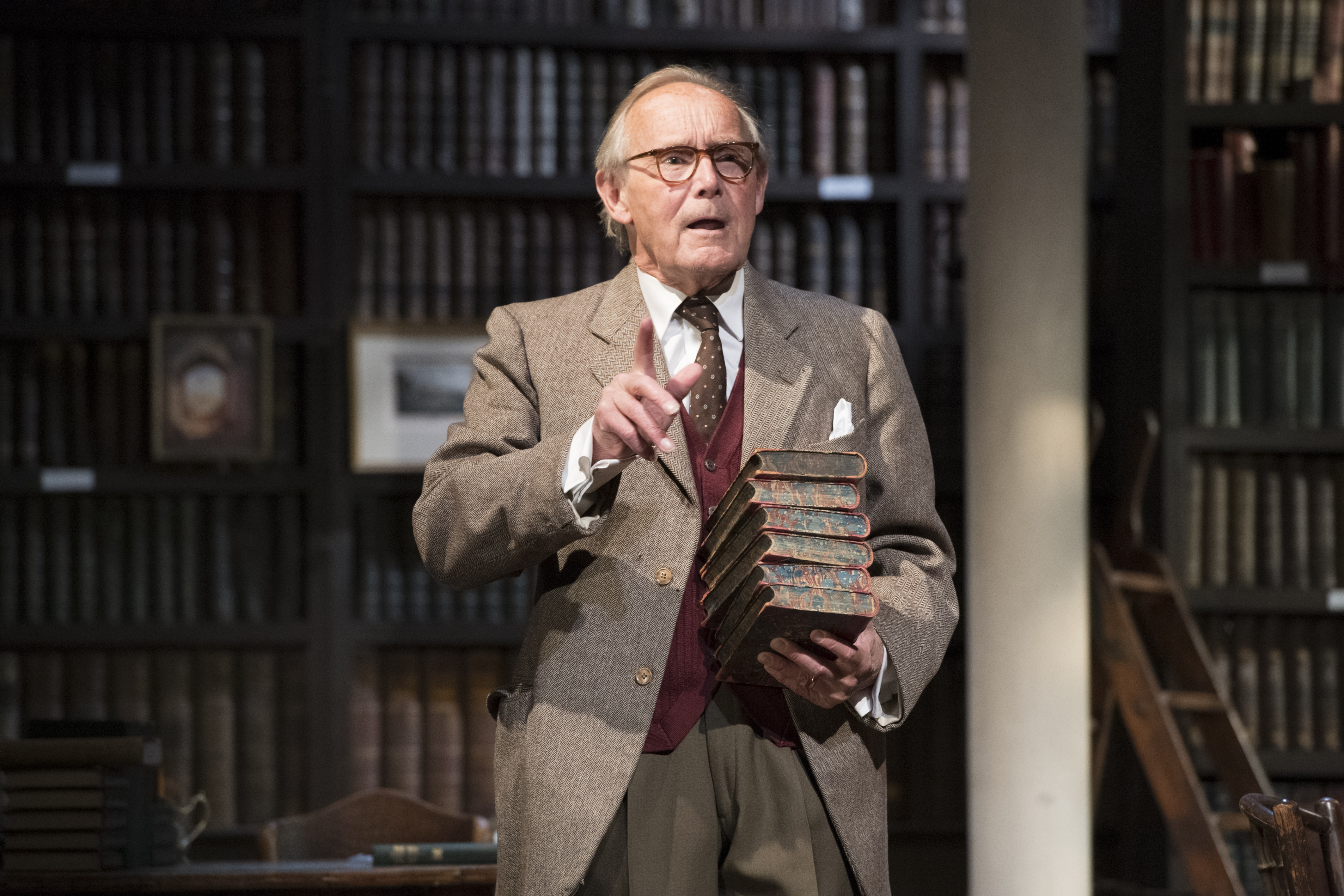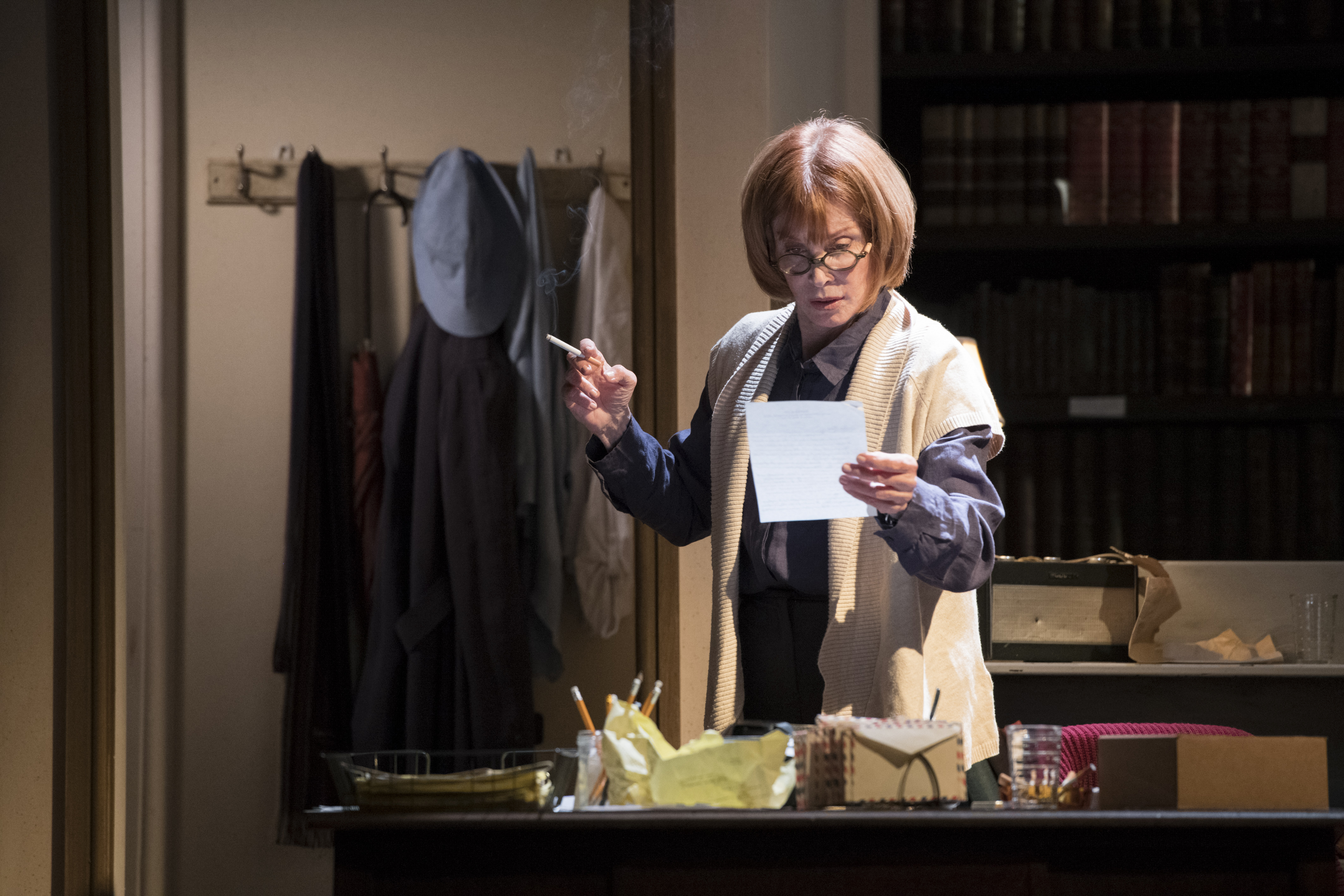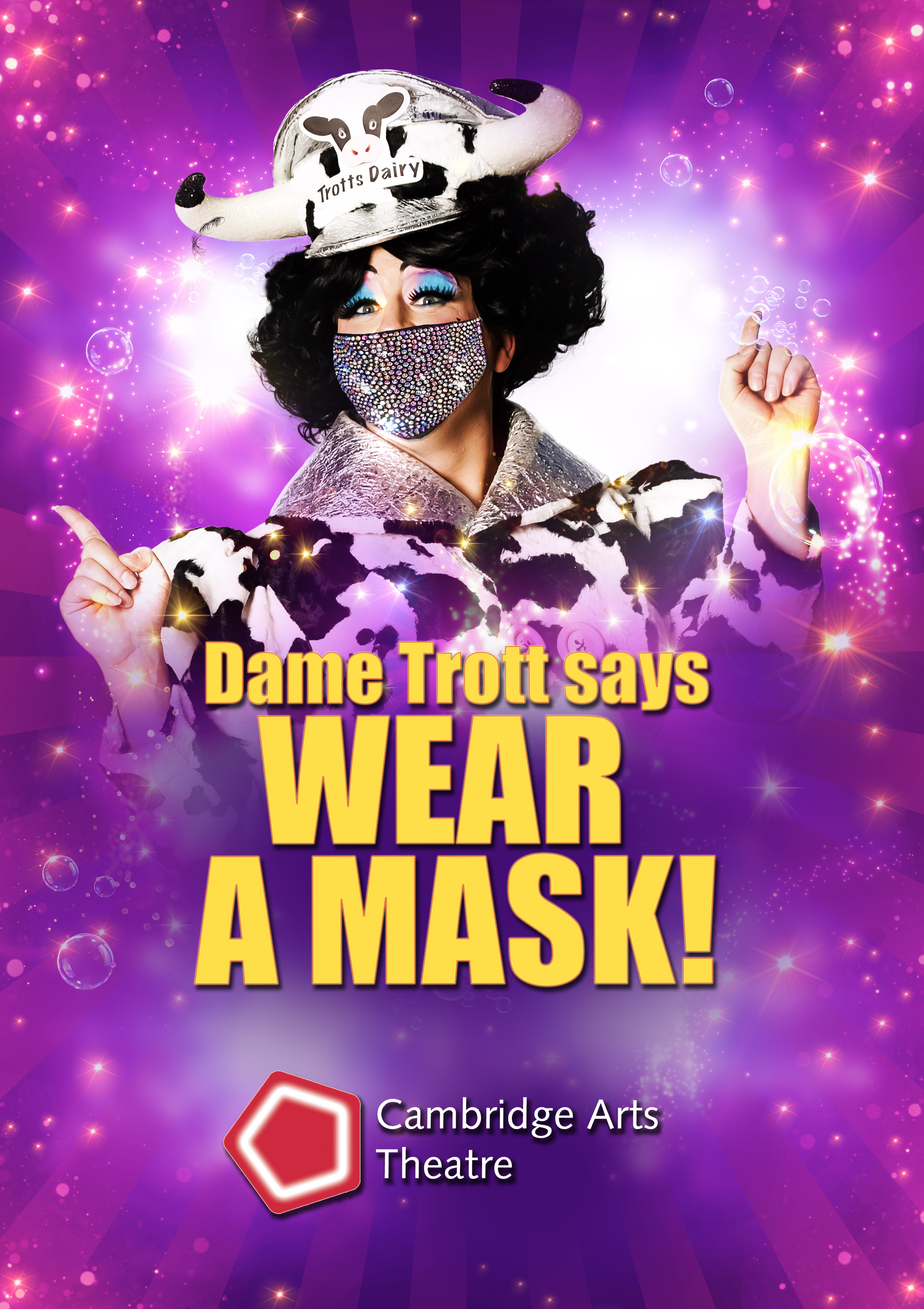2000
Ian Ross appointed as Director.
2003
Dave Murphy appointed as Chief Executive.
2005
Cambridge Arts Theatre won the ‘Way To Be’ Award for excellence in providing access for customers with additional needs, and the Theatre Management Award for the ‘Most Welcoming Theatre’.
2007
Trevor Nunn returned to the Arts Theatre to direct Cymbeline for the Marlowe Society’s centenary production, assisted by Robert Icke.

2008
Tracy Chevalier's new play Girl with a Pearl Earring premiered at Cambridge Arts Theatre prior to a transfer to the West End.
2011
The Theatre entered its 75th anniversary year. Sir Ian McKellan returned to the Arts stage after an absence of many years to perform in The Syndicate.
2013
The Theatre's Supporters invested £1.5 million in the development of the Front of House spaces and significant building works which transformed our existing foyer areas and provided improved bar facilities.
2016
The Theatre returned to in-house producing after many years with a production of 84 Charing Cross Road, starring Stefanie Powers and Clive Francis.


2018
The Olivier award-nominated musical Six premiered at Cambridge Arts Theatre, following its successful run at the Edinburgh Fringe.
2019
The Theatre received a £100,000 grant to preserve it's heritage, read more here.

2020
In March, in line with government restrictions to control the spread of Coronavirus, Cambridge Arts Theatre closed.
In December, Cambridge Arts Theatre was one of only a handful of UK theatres to produce a Pantomime. With a rigorous testing regime and a socially distanced audience, Dame Trott's Panto Palaver played to 5,500 people before closing on Christmas Eve when the Theatre was forced to shut once again.

2021
In June, Cambridge Arts Theatre reopened with its 'Theatre is Back' campaign. Highlights from the opening season included Michael Frayn's Tony award-winning Copenhagen, a stage adaptation of T. S. Eliot's Four Quartets starring Ralph Fiennes, and Patricia Hodge and Nigel Havers in Noël Coward's classic comedy Private Lives.